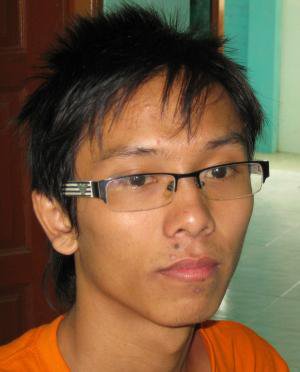Chiang Mai (Mizzima) – A photojournalist with the foreign-based Democratic Voice of Burma (DVB), Sithu Zeya, who took photographs following the bomb explosions at the Rangoon water festival in 2010, has been given an additional 10-year prison sentence by the Rangoon East District Court.

Video journalist Sithu Zaya, who has been sentenced to an additional 10 years in prison by the Burmese government. He is one of 17 DVB-affilated journalists imprisoned by the government. Photo: freeburmavjEarlier, Sithu Zeya, 23, was sentenced to eight years in prison under the Immigration Act and the Unlawful Association Act. Police interrogated him for more than six months, and he was tried inside Insein Prison.
Judge San Yu Tin sentenced Sithu Zeya to an additional 10 years for breaching the Electronics Act, and he must now serve 18 years in prison.
Sithu Zeya’s mother Yi Yi Tint said, “They could not provide any evidence that he violated that act.” She said the verdict would be appealed.
On Wednesday, Sithu Zeya, bound in fetters, went from Insein Prison to the court to appear in the two-hour hearing. He appeared to be in good health, his mother said.
Sithu Zeya’s father was also charged under the Immigration Act, Unlawful Association Act and Electronics Act. In February, he was sentenced to 13 years and is now serving his sentence in Hsipaw Prison.
Ten people including military officers were killed and more than 170 people were injured in the bomb blasts at the X2O pavilion during the water festival in Rangoon on April 15, 2010. Sithu Zeya was arrested after the incident followed by his father’s arrest.
There are now 17 DVB-associated journalists in Burmese prisons, according to the Free Burma VJ website.
Reporters Without Borders, an international journalists group, protested the imprisonment and sentencing.
"We are outraged by this unacceptable sentence," it said in a statement. "Sithu Zeya is just 21 and has committed no crime. How can the Burmese government claim to be on the road to democracy when its judicial system flouts fundamental human rights? Recent events show that the conciliatory gestures so far taken by this government are just part of a PR strategy and are not indicative of a real intention to give Burmese citizens more media freedom."
The press freedom organization added: "The permission that Burmese publications have been given [recently] to show Aung San Suu Kyi on their cover should not be seen as anything other than a smokescreen if, at the same time, a judge takes such an unjust decision against a journalist."



